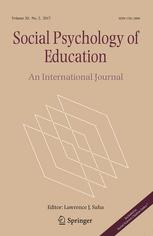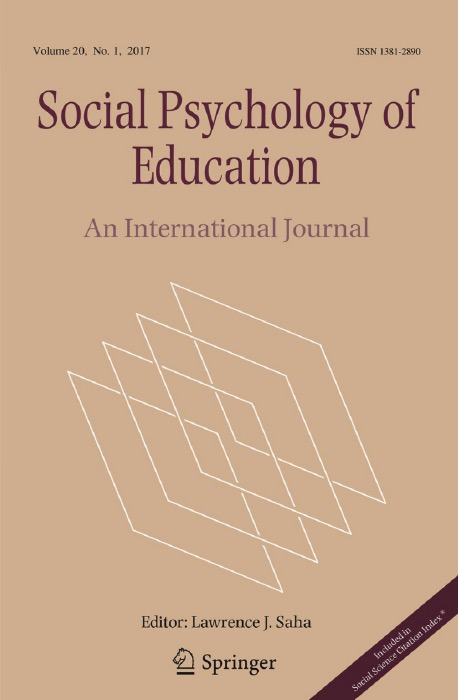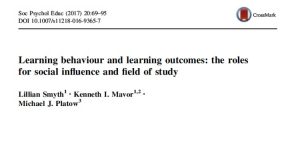 This is an article by Lillian Smyth, Kenneth I. Mavor, and Michael J. Platow published in the Social Psychology of Education (2017).
This is an article by Lillian Smyth, Kenneth I. Mavor, and Michael J. Platow published in the Social Psychology of Education (2017).
The research reported in this paper was part of Lillian’s PhD project on discipline identification, peer norms and approaches to learning. In this paper we confirm the association of both identity and norms with deep learning approaches as well as perceptions of teaching quality and intention to continue in the discipline. We also map out some comparisons across different types of discipline groupings.
Abstract
Research has demonstrated a significant role of discipline social identification in predicting learning approaches, even controlling for individual differences. Smyth et al. (2015) suggest that learners share discipline-based social identifications, and that this identification, in combination with relevant norms, influences the adoption of learning approaches. The current paper extends this analysis in two directions. First, the effect of broad field of study is examined for systematic differences across content domains. Secondly, the model examines effects on student perceptions of teaching quality and intentions to continue within a discipline. Results provide support for Smyth et al.’s (2015) model, demonstrating links between discipline identification, perceived norms, learning approaches and outcomes. Strongly identified students, students who perceived deep learning norms and students taking a deep learning approach all reported more positive outcomes. Disciplinary variations in responses to learning approaches and outcomes were also found, broadly in line with that found in the Biglan–Becher literature.

